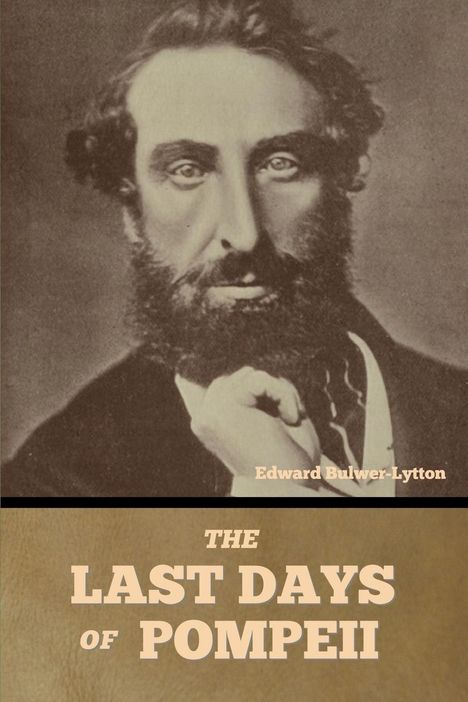Edward Bulwer-Lytton: The Last Days of Pompeii, Kartoniert / Broschiert
The Last Days of Pompeii
(soweit verfügbar beim Lieferanten)
- Verlag:
- Bibliotech Press, 08/2024
- Einband:
- Kartoniert / Broschiert, Paperback
- Sprache:
- Englisch
- ISBN-13:
- 9798888308479
- Artikelnummer:
- 11937695
- Umfang:
- 308 Seiten
- Gewicht:
- 503 g
- Maße:
- 229 x 152 mm
- Stärke:
- 18 mm
- Erscheinungstermin:
- 7.8.2024
- Hinweis
-
Achtung: Artikel ist nicht in deutscher Sprache!
Weitere Ausgaben von The Last Days of Pompeii |
Preis |
|---|
Klappentext
The Last Days of Pompeii is a novel written by Edward Bulwer-Lytton in 1834. The novel was inspired by the painting The Last Day of Pompeii by the Russian painter Karl Briullov, which Bulwer-Lytton had seen in Milan. It culminates in the cataclysmic destruction of the city of Pompeii by the eruption of Mount Vesuvius in AD 79.
The novel uses its characters to contrast the decadent culture of 1st-century Rome with both older cultures and coming trends. The protagonist, Glaucus, represents the Greeks who have been subordinated by Rome, and his nemesis Arbaces the still older culture of Egypt. Olinthus is the chief representative of the nascent Christian religion, which is presented favourably but not uncritically. The Witch of Vesuvius, though she has no supernatural powers, shows Bulwer-Lytton's interest in the occult-a theme which would emerge in his later writing, particularly The Coming Race.
A popular sculpture by American sculptor Randolph Rogers, Nydia, the Blind Flower Girl of Pompeii (1856), was based on a character from the book. (wikipedia. org)
About the Author: Edward George Earle Lytton Bulwer-Lytton, 1st Baron Lytton, PC (25 May 1803 - 18 January 1873) was an English writer and politician. He served as a Whig member of Parliament from 1831 to 1841 and a Conservative from 1851 to 1866. He was Secretary of State for the Colonies from June 1858 to June 1859, choosing Richard Clement Moody as founder of British Columbia. He declined the Crown of Greece in 1862 after King Otto abdicated. He was created Baron Lytton of Knebworth in 1866.
Bulwer-Lytton's works were well known in his time. He coined famous phrases like "pursuit of the almighty dollar", "the pen is mightier than the sword", "dweller on the threshold", "the great unwashed", and the opening phrase "It was a dark and stormy night." The sardonic Bulwer-Lytton Fiction Contest, held annually since 1982, claims to seek the "opening sentence of the worst of all possible novels".
Bulwer-Lytton's literary career began in 1820 with the publication of a book of poems and spanned much of the 19th century. He wrote in a variety of genres, including historical fiction, mystery, romance, the occult and science fiction. He financed his extravagant way of life with a varied and prolific literary output, sometimes publishing anonymously.
Bulwer-Lytton was portrayed by the actor Brett Usher in the 1978 television serial Disraeli. (wikipedia. org)
Mehr von Edward Bulwer-L...
-
Edward Bulwer-LyttonAlice, or the MysteriesBuchAktueller Preis: EUR 27,28
-
Edward Bulwer-LyttonThe Coming RaceBuchAktueller Preis: EUR 21,09
-
Edward Bulwer-LyttonA Strange StoryBuchAktueller Preis: EUR 27,53
-
Edward Bulwer-LyttonZanoniBuchVorheriger Preis EUR 29,17, reduziert um 0%Aktueller Preis: EUR 27,53







